Hidden Helix Piercing -
Complete Guide to Placement,
Pain & Healing
Cartilage piercings remain some of the most versatile and creative body modifications.
One of the more unique variations is the hidden helix piercing, a placement that is subtle, refined, and often overlooked compared to standard helix styles. This piercing appeals to people who want something discreet, personal, and elegant, while still enjoying the edgy character of cartilage jewelry. In this guide, we’ll explore what makes this placement unique, how much it hurts, healing times, cost, and why it’s worth considering for your curated ear project.
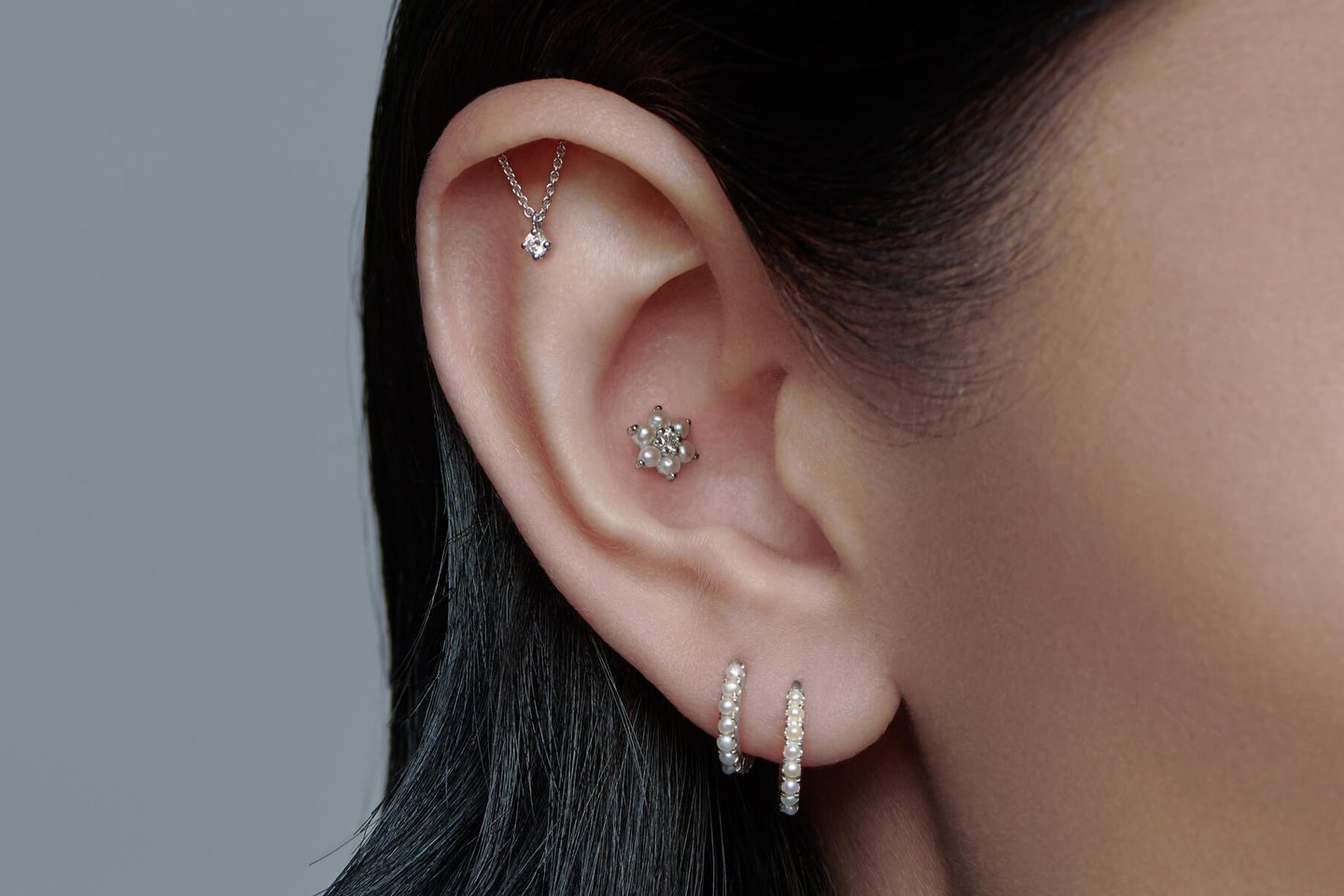
What is
a Hidden Helix Piercing?
The first question many people ask is: what is a hidden helix piercing?
Simply put, it is a piercing placed on the inner portion of the helix rim, often tucked slightly under the fold of cartilage rather than on the visible outer edge. Because of its position, it is less noticeable at first glance - hence the term “hidden.” This makes it an appealing choice for those who want a piercing that feels personal and intimate, visible only from certain angles.
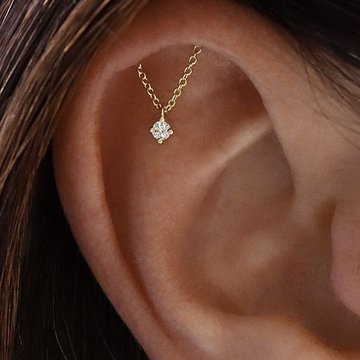
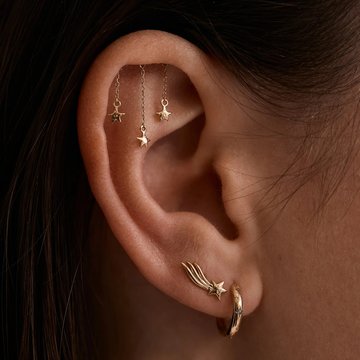
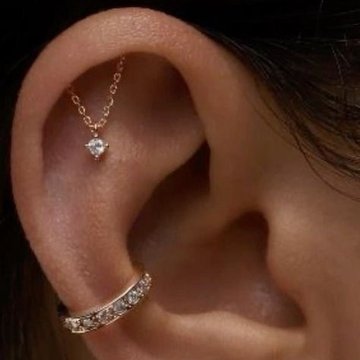
Hidden Helix Piercing
Placement - Front and Back
A unique characteristic of this piercing is that it can be styled in different ways depending on placement.
Some clients choose the more visible outer rim, while others prefer a hidden helix piercing back, where the jewelry is positioned towards the inner fold and less exposed. This hidden position offers a sleek look and pairs beautifully with other piercings like tragus or rook, giving the ear a multi-layered design.

Aesthetic Appeal
and Style
The hidden helix is chosen for its subtlety.
While regular helix piercings are immediately noticeable, this style is more discreet. Jewelry often peeks out only when hair is tucked back or when viewed at certain angles. For many clients, this makes it a more personal statement, something that doesn’t draw immediate attention but still feels stylish. Popular jewelry includes small hoops, crystal studs, or minimalist titanium pieces that fit snugly into the cartilage fold.
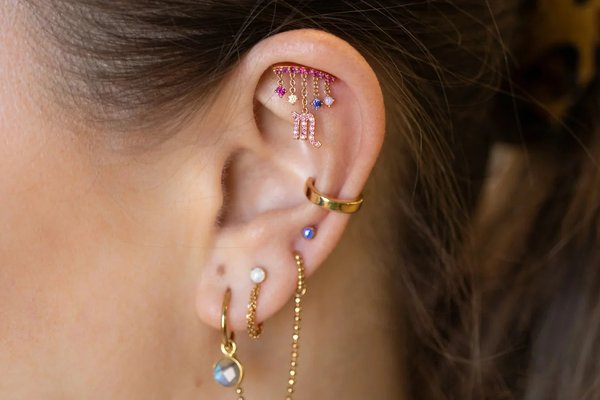
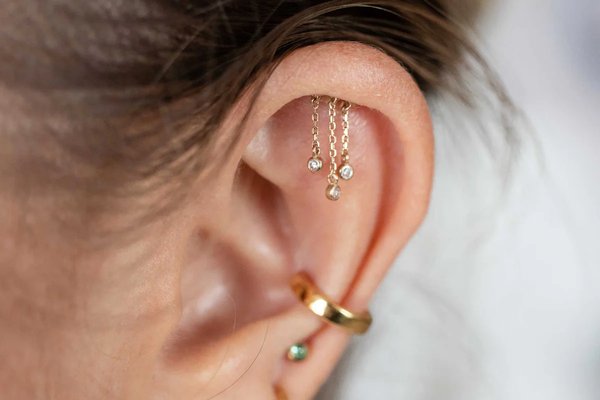
Pain and Experience
A common question is: how much does it hurt?
Since cartilage is firmer than the lobe, there is always some discomfort. On average, the hidden helix piercing pain level is described as moderate - sharper than a lobe piercing but less intense than thicker cartilage placements like conch or daith. Most clients rate it around 4-6 on a 10-point scale. The piercing is quick, and the sensation usually subsides within seconds, with soreness lasting for a few days afterward.
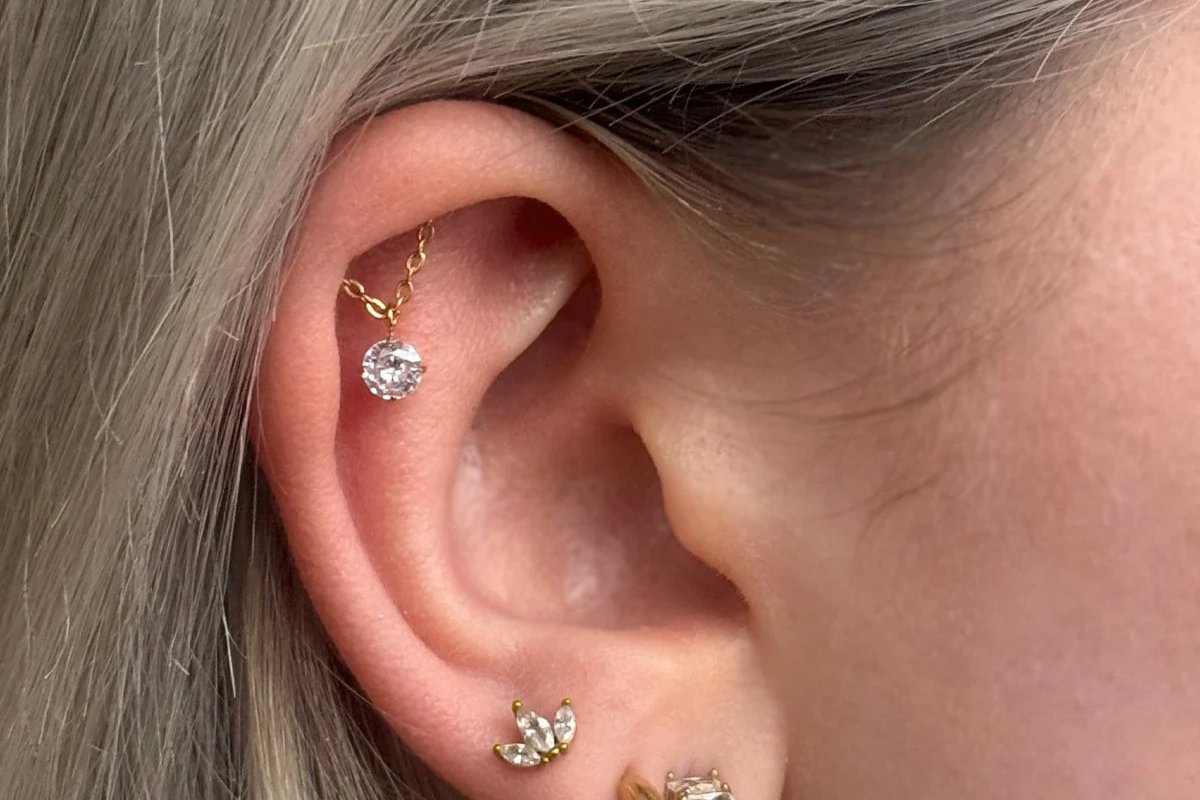
Healing Time and Aftercare
Like all cartilage piercings, this one requires patience.
The average hidden helix piercing healing time is 6–9 months, with full stabilization sometimes taking up to a year. Healing is not linear; the piercing may feel fine for weeks and then flare up if irritated. Proper aftercare is key:
- Clean twice daily with sterile saline solution.
- Avoid twisting or touching the jewelry unnecessarily.
- Sleep on the opposite side to reduce pressure.
- Keep hair and headphones away from the area.
- Return to your piercer for downsizing if swelling reduces.
With consistent care, the piercing should heal smoothly and remain comfortable long term.
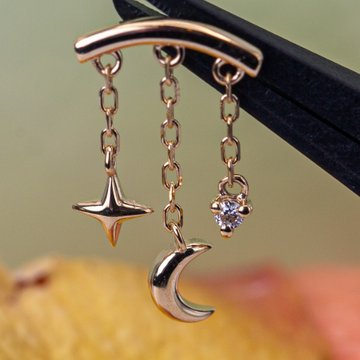
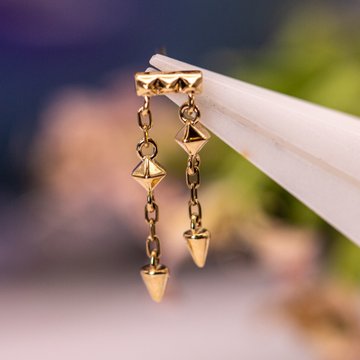
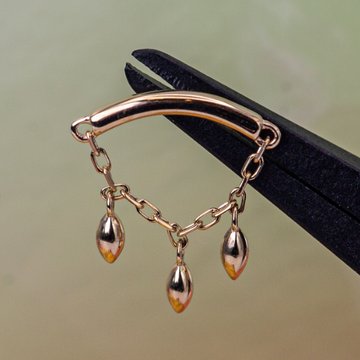
Price and Cost Factors
Clients often ask about the hidden helix piercing price.
The cost depends on the studio, the city, and the jewelry chosen. Implant-grade titanium or gold jewelry will increase the price but ensures safe healing. While budget options exist, choosing quality materials and an experienced piercer is worth the investment. The price covers not only the procedure itself but also sterile technique, precision placement, and professional aftercare guidance
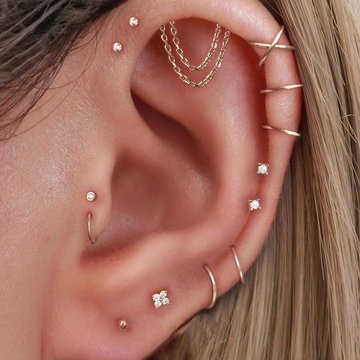
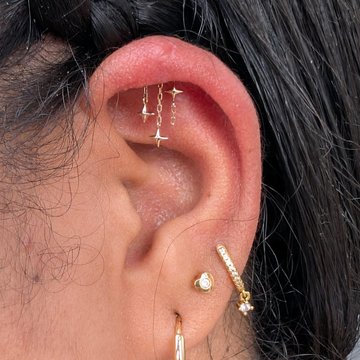
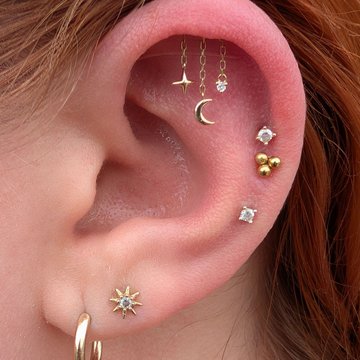
Hidden Helix Piercing
for Men and Women
This style is not limited to women; the hidden helix also appeals to men who want something subtle and less visible.
Men often choose matte black or titanium studs, while women tend to select crystal accents or delicate hoops. The placement works for all genders because of its discreet position and versatile styling options.
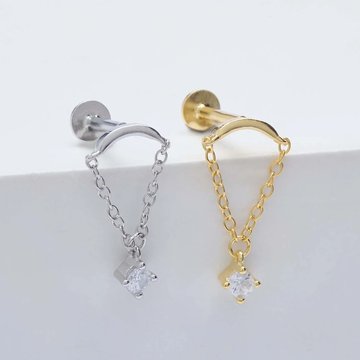
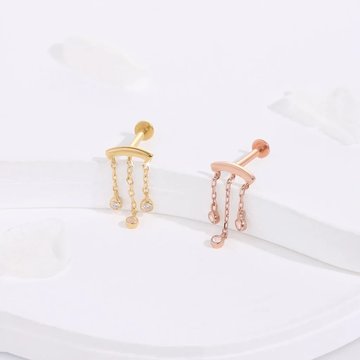
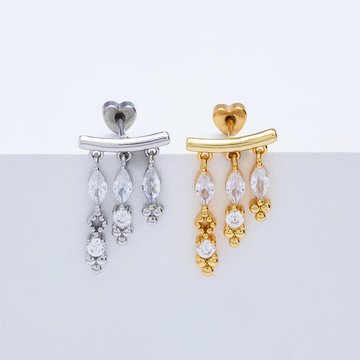
Piercing Combinations
and Ear Projects
The hidden helix pairs beautifully with other cartilage piercings.
It often works well with tragus, rook, or even daith piercings, creating a layered effect where jewelry is visible at different depths of the ear. For curated ear projects, the hidden helix provides contrast by being less obvious yet still part of the overall design.
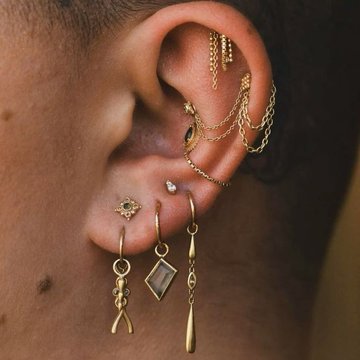
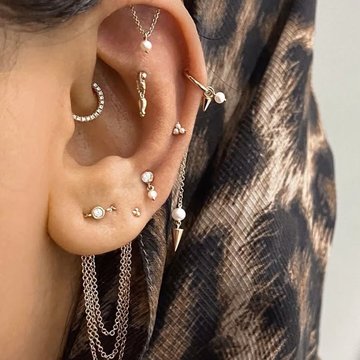
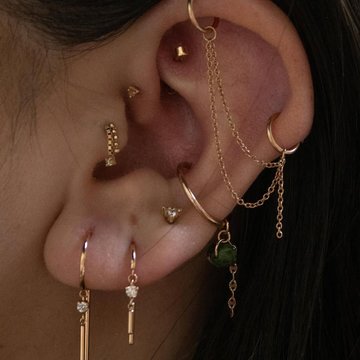
Why Choose
a Professional Studio?
Because the hidden helix involves piercing firm cartilage in a tucked position, precision is critical.
Poor placement can cause irritation or uneven healing. A professional studio ensures sterile tools, implant-grade jewelry, and proper angle control. Experienced piercers also offer advice on jewelry changes, downsizing, and aftercare, ensuring that your piercing heals properly and looks stylish long term.
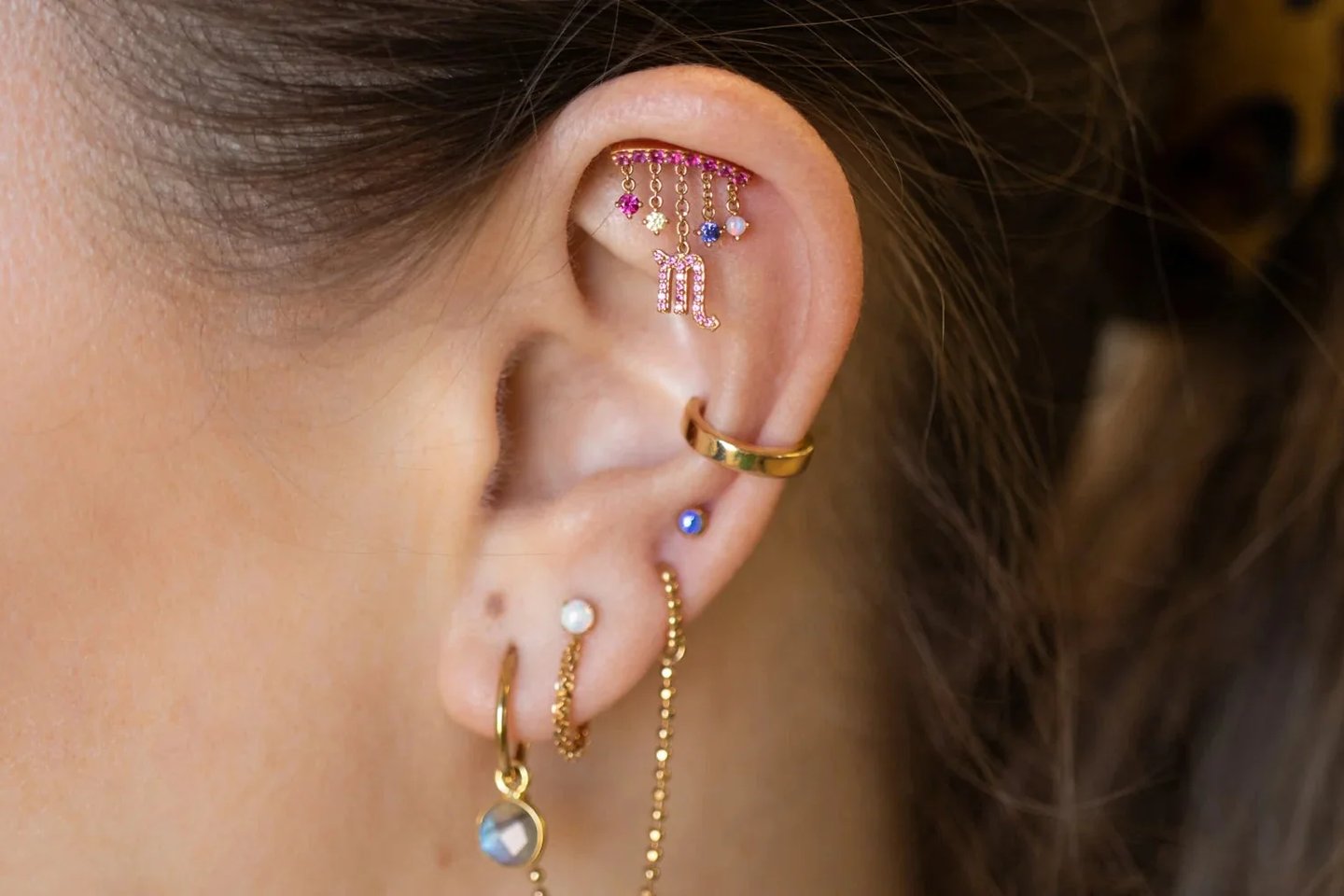
Aftercare Timeline
Healing is gradual and requires consistency:
- Week 1–2: swelling, tenderness, and redness are normal.
- Weeks 3–6: keep cleaning regularly, avoid pressure and friction.
- Months 2–4: tissue stabilizes, but irritation bumps may occur.
- Months 5–9: piercing strengthens, jewelry can sometimes be changed with piercer approval.
After 9 months: usually considered healed, though some individuals need up to 12 months.
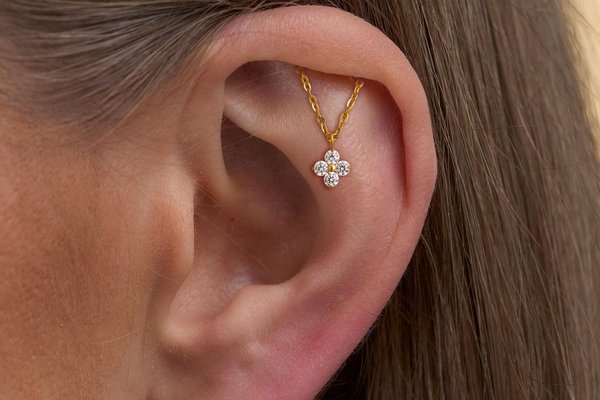
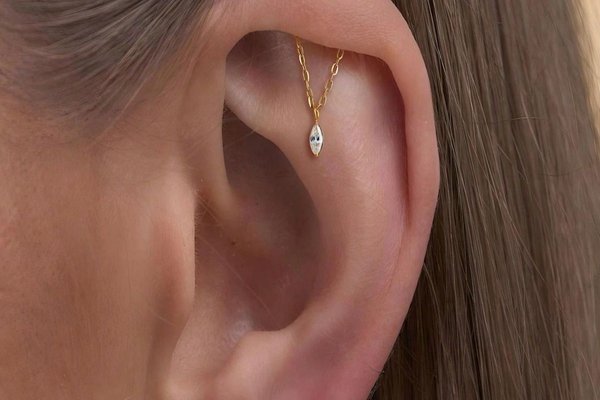
The hidden helix piercing is discreet, elegant, and versatile, offering a personal touch to any ear project.
Whether you choose a subtle stud or a minimalist hoop, this placement provides individuality and style without being overly visible. If you’re ready to try it, book your appointment at VEAN TATTOO. Our professional piercers ensure precise placement, sterile technique, and full aftercare support. With patience and the right jewelry, your hidden helix will become a timeless and personal statement of style.
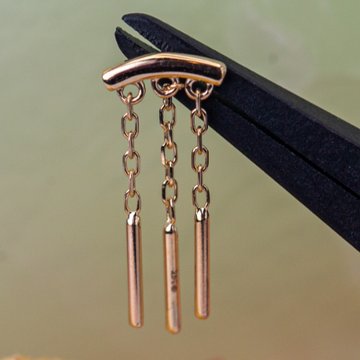
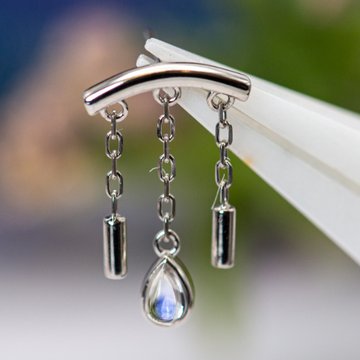
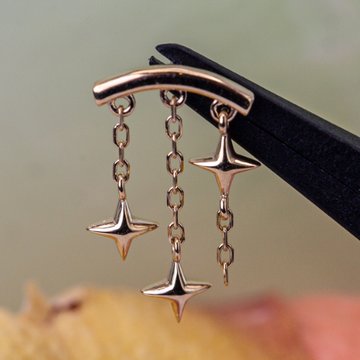


 Make a sketch in the AI VEAN TATTOO generator
Make a sketch in the AI VEAN TATTOO generator




